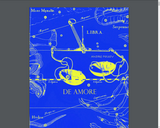
Theory of everything.
- Subject:
- Mathematics
- Physical Science
- Physics
- Material Type:
- Textbook
- Author:
- Andrej Poleev
- Date Added:
- 09/08/2018

Theory of everything.

This subject examines the ways in which we read. It introduces some important strategies for engaging with literary texts developed in the twentieth century, paying special attention to poststructuralist theories and their legacy. The course is organized around specific theoretical paradigms. In general, we will: (1) work through the selected readings in order to see how they construe what literary interpretation is; (2) locate the limits of each particular approach; and (3) trace the emergence of subsequent theoretical paradigms as responses to what came before.
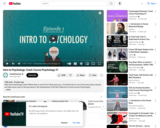
What does Psychology mean? Where does it come from? Hank gives you a 10-minute intro to one of the more tricky sciences and talks about some of the big names in the development of the field. Welcome to Crash Course Psychology!!!
Chapters:
Introduction: What is Psychology?
Early Thinkers in Psychology
Big Questions in Psychology
Sigmund Freud
Disciplines of Psychology
Structuralism
Functionalism
Psychoanalysis
Freud's Death & Legacy
Behaviorism
Psychodynamic Theories
Other Disciplines in Psychology
Credits
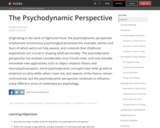
Originating in the work of Sigmund Freud, the psychodynamic perspective emphasizes unconscious psychological processes (for example, wishes and fears of which we’re not fully aware), and contends that childhood experiences are crucial in shaping adult personality. The psychodynamic perspective has evolved considerably since Freud’s time, and now includes innovative new approaches such as object relations theory and neuropsychoanalysis. Some psychodynamic concepts have held up well to empirical scrutiny while others have not, and aspects of the theory remain controversial, but the psychodynamic perspective continues to influence many different areas of contemporary psychology.

Psychology is designed to meet scope and sequence requirements for the single-semester introduction to psychology course. The book offers a comprehensive treatment of core concepts, grounded in both classic studies and current and emerging research. The text also includes coverage of the DSM-5 in examinations of psychological disorders. Psychology incorporates discussions that reflect the diversity within the discipline, as well as the diversity of cultures and communities across the globe.Senior Contributing AuthorsRose M. Spielman, Formerly of Quinnipiac UniversityContributing AuthorsKathryn Dumper, Bainbridge State CollegeWilliam Jenkins, Mercer UniversityArlene Lacombe, Saint Joseph's UniversityMarilyn Lovett, Livingstone CollegeMarion Perlmutter, University of Michigan
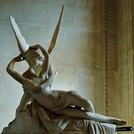

By the end of this section, you will be able to:Understand the importance of Wundt and James in the development of psychologyAppreciate Freud’s influence on psychologyUnderstand the basic tenets of Gestalt psychologyAppreciate the important role that behaviorism played in psychology’s historyUnderstand basic tenets of humanismUnderstand how the cognitive revolution shifted psychology’s focus back to the mind


By the end of this section, you will be able to:Distinguish between psychotherapy and biomedical therapyRecognize various orientations to psychotherapyDiscuss psychotropic medications and recognize which medications are used to treat specific psychological disorders
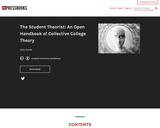
Welcome to Critical Theory! We know that this field probably seems daunting, but now that you’re here, we’re here to help you get more comfortable with concepts such as ideology, constructivism, and the uncanny, to name a few. This handbook is a student-built guide that explains and exemplifies different literary theories. Written in accessible language with modern-day examples, this handbook seeks to make literary theory more manageable.
This handbook is a blend between a traditional textbook and an experimental anthology. It includes a range of pieces that show students grappling with the concepts themselves. Moreover, it’s free and organized according to the theories presented in the syllabus.